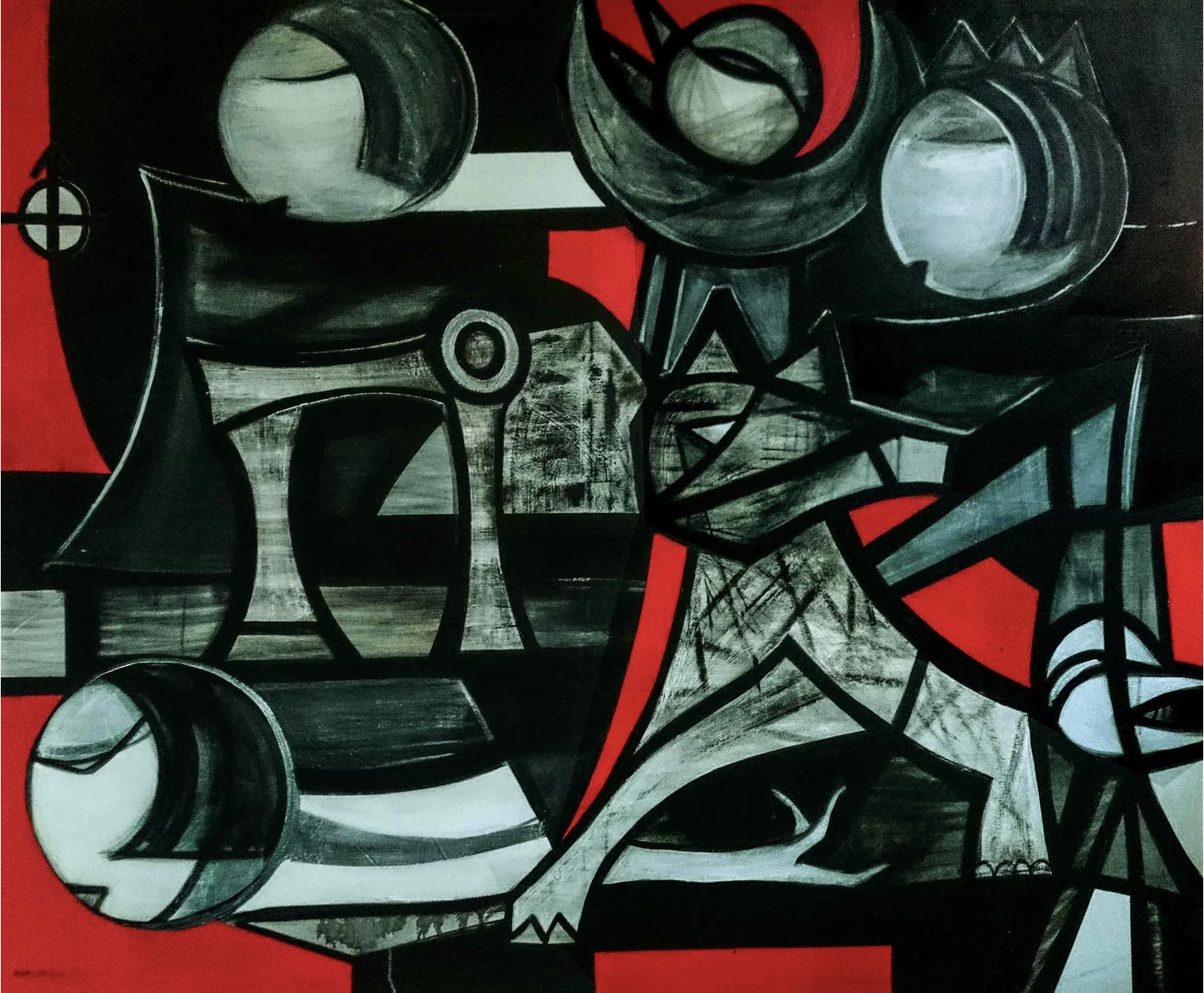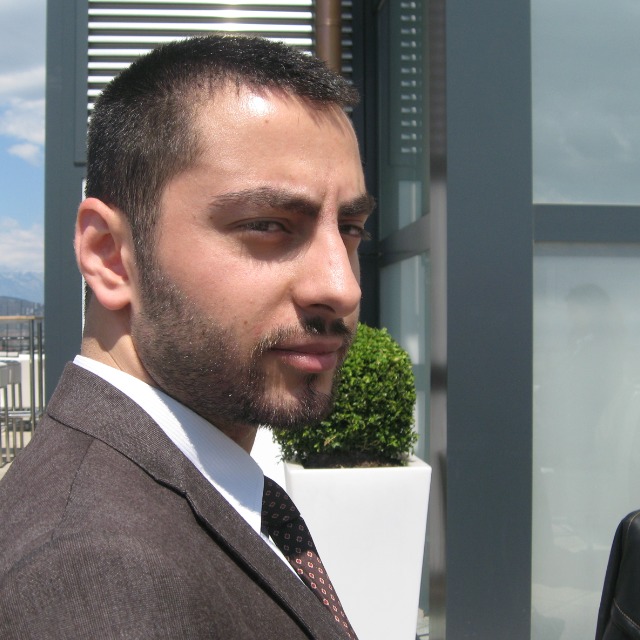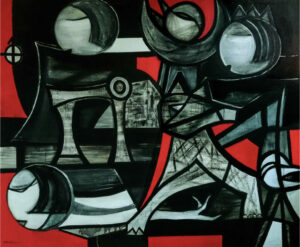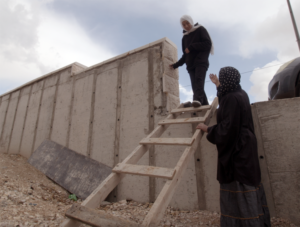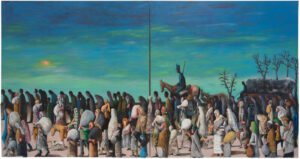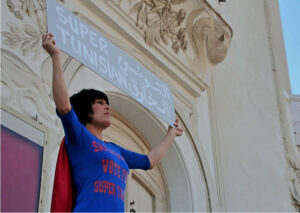A haunting, poetic short story takes first place in the 2025 Azhar Writing Prize. Reporting from the field during an unremitting conflict, a foreign correspondent faces desvastation and senseless violence. Scarred emotionally and physically, she crosses a line.
1.
Burned homes all around me, smoke pleading to the moonless night. A charred sign hissed under the weight of my boot. Every innocent thing in this cursed country is too fragile. The rest are criminals, even the rebels. They plod through mayhem, intoxicated, exhilarated, war cries and all. One stomps over a corpse. He stumbles off and bumps into my shoulder. I wince. He laughs, pats my little head, tells me I’ve done well today as if I were one of them. I wish I were. I wish I could call this carnage a victory. As much as I’ve been fascinated by war stories, by heroes, I’m no warrior — just a foreign journalist pressing her way through destruction and pain, searching for the truth. I don’t share the rebels’ vendetta, nor their desperate hunt for freedom. All I’m here for is to record history. They can keep their bloody weapons. Mine are words.
2.
His hair is unkempt. He wears the warmest of smiles. He lives in a tent alone with his goat — the last in the country, he claims — after a systematic campaign to starve the people and turn them against the rebellion. I’m no expert on goats, but I figure this one won’t last long. I can tell from the faces of my armed escorts they have considered ending her miserable life. Perhaps my presence has saved her. I’d like to think so.
Whether it’s out of fear or courtesy, the man agrees to be interviewed.
“How long have you been here?”
“A while.”
“This is an important point in your people’s history, and you chose not to be a part of it. Why?”
“It’s better this way. The more you learn about humans, the more you appreciate the company of animals.”
“Don’t you share your people’s fervent belief in freedom and martyrdom?”
He shakes his head, voice cracked. “I was a teacher once. The war had just begun, and everyone was arguing. Normal, healthy — I reckoned. Then one of my students was murdered. He might have been a poet now… I kept records of their names. I wanted to remember them all. Over time, the names became numbers, and I stopped. If heaven is full of murderers, I prefer hell.”
“Have you tried to reason with your countrymen?”
“What use is reason when everyone’s gone mad?”
3.
She is a child of four. Her face is pale, smudged with traces of tar, hazel eyes flicker with subdued tears.
“Where are your folks, dear?” I ask.
She bows her head, pointing down at her torn shoes. Soil-crusted toes draw a swarm of flies. I offer her bread.
“I dream of bread,” she says. “Old bread. This one is terribly sour.”
4.
Two gravediggers stand next to a cart covered with dirty sheets.
“How many do you have?” the first asks.
“Fifty. Fifty-three. You?”
“Twenty, at best. Not enough to feed the kids. Can you spare some?”
“It will cost you. The young ones always do.”
“Another 20?”
“Fifteen is all. Many are mutilated.”
“Any identification? Their folks will need convincing.”
The second shrugs. “We sell comfort, not truth.”
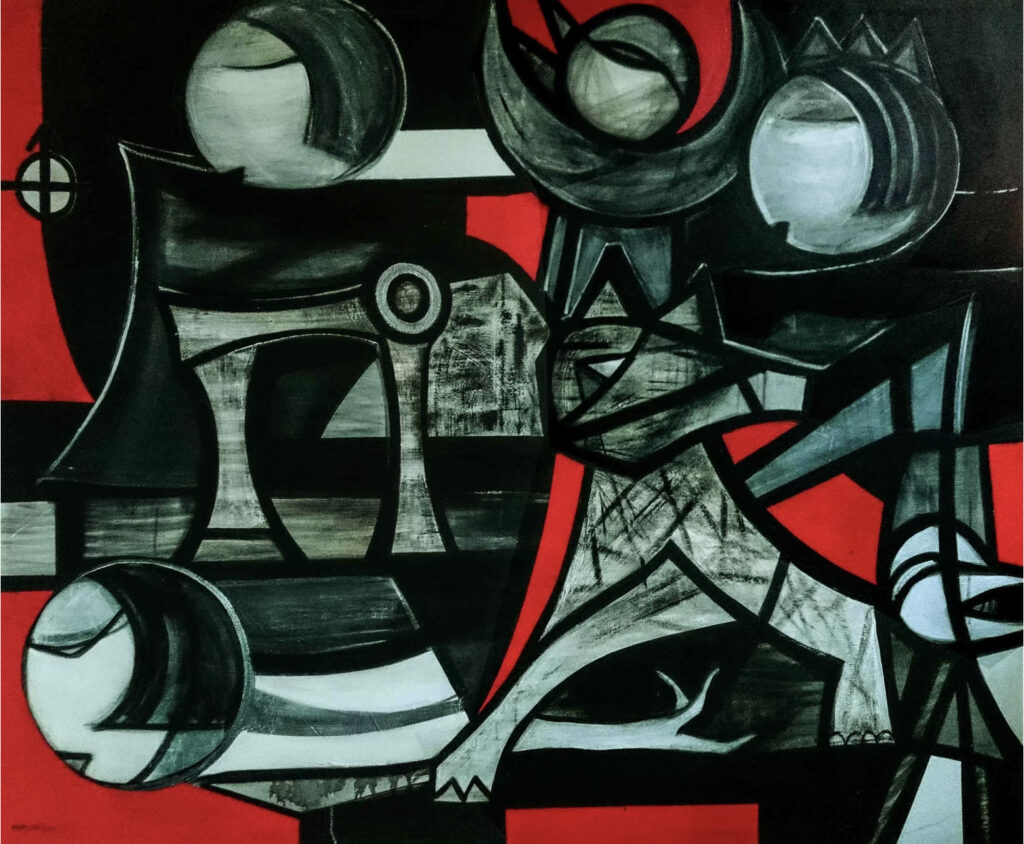
5.
I have a new scar — a thin slit on my upper arm. It tickles at day and burns at night. Scars are memories. Someone must have said this before, in a book, maybe. I see my comrades earning new memories every other day, some are fatal. Mine came from a slip on a tricky road.
6.
At dawn, he rests his knife on his knee. With a splash of water, he cleanses the blood with the gentleness of a lover caressing his mistress’s neck after a heated night. And sings:
Autumn’s breath
On sheets of hay
Water’s blood
A color we call morning.
7.
A leg pinned in the snow, alone under the bare skeleton of a tree. All trees look the same now, the unburned ones at least. Just a leg. No body.
Who did this? Us? Them? It’s hard to tell.
I spend the day retching.
8.
My mother won’t approve of this, but I must confess.
I believe in God, but I’ve never relied on Him. I don’t pray. I don’t fast. I never forgave the schoolboy who broke my pen. If I saw him now, I might strangle him with my bare hands.
But I have read the Scripture.
There’s one parable I can’t shake off my head today as I carve my initials on the remains of what has been a peaceful house.
After the death of the Prophetess, Saint Aphrahat was lucky enough to escape the following pogrom. One night, as he was praying next to a maple tree, he fell asleep. God appeared to him in a dream, first as a dove.
“Where is my blessed prophetess?” God asked.
Tearful, Aphrahat answered, “Stoned to death.”
God was silent for a long while. “What of Hitta, my chosen?”
“Burned on a stake.”
“Suma of the White Heart?”
“Hanged and quartered.”
“Where were you then?”
“I witnessed. I did nothing.”
God turned into a raven, and with a shivering voice, He said: “Tell everyone. You are on your own now.”
Telling the truth is never enough. One must bleed for it.
9.
I killed someone today. The enemy ambushed us in a narrow pass by nightfall, and I didn’t take shelter. I didn’t want to this time. A soldier lunged at me. We embraced. He fell over me and I pushed him back, pulled him under, clawed his wrist, bit his neck, gritted my teeth, grinding, howling, squealing, screeching, reaching for my knife, and thrusting it into his heart. He hissed — not in pain or shock, but in relief. The cold hilt against my palm, warm blood bubbling in my throat, a terrible comfort.
At night, my comrades honored me with a toast. Next dawn, I put on armor, charging forward, intoxicated, exhilarated, war cries and all… while God whispered in my ears: “You’re on your own now.”



